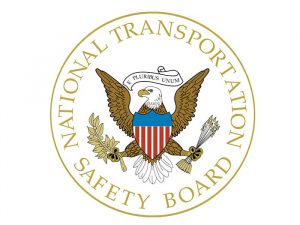
Q&A: Sustainability and the tug, towboat and barge industry
Written by Heather Ervin
[Credit: Shutterstock]
As most of us know by now, sustainability is at the forefront of hot topics in the maritime industry. One of our most involved sectors of the U.S. maritime industry—the tug, towboat and barge market—has been keeping tabs on the changing regulatory landscape.
We recently got some questions answered when we sat down with Caitlyn Stewart, vice president – regulatory affairs with the American Waterways Operators (AWO)—who will be presenting on the latest in tug and towboat regulations at Marine Log’s TTB 2022 conference taking place in Mobile, Ala., on March 29-30. Here’s what she had to say:
ML: There’s a lot of talk about the criticality of sustainability. How are AWO members approaching the conversation?
Caitlyn Stewart (CS): As operators of tugboats, towboats, and barges, AWO’s carrier members are proud to be part of the safest, most environmentally responsible mode of freight movement. As other modes work to get greener, we know we need to build on the natural advantages of marine transportation to become even better—but continuous improvement in safety and environmental stewardship has been a deep and longstanding commitment of AWO’s member companies.
ML: How are companies across the industry working to get even better through the use of available technologies and practices?

CS: The tugboat, towboat, and barge industry is incredibly diverse geographically and operationally, and as a result, there’s no one-size-fits-all pathway to reducing environmental impact. AWO has members that are taking small but meaningful steps, such as setting fuel consumption reduction targets, and has others that are making major investments in alternative fuels and propulsion systems.
Last year, our members asked AWO to develop guidance to support their sustainability efforts, and the result of their directive is a set of voluntary best practices produced by our Environmental Stewardship Working Group (Marine Log reported on this earlier). The best practices encompass actions that companies can take—from the small- to the large-scale—to improve water quality, energy efficiency, air quality, waste management, and corporate responsibility.
Becoming “greener” can be a financial challenge for many. How are companies overcoming this and what other challenges are you seeing where working toward becoming a more sustainable company in maritime is concerned?
It’s important to recognize that sustainability initiatives don’t have to cost a lot to make a difference. Something as simple as inventorying fuel consumption or waste generation can help companies identify low-cost opportunities for improvement, like adjusting routing schedules to minimize standby time or switching to refillable water bottles.
Where significant investment is required—such as in the construction of low-carbon or carbon-free vessels—companies are partnering with federal and state government entities for financial and technical assistance, and AWO and other maritime sector stakeholders are advocating for further funding opportunities to support the transition to cleaner fuels.
That transition is a challenge for many reasons, but one that’s unique to the tugboat and towboat industry is the very long useful life of our vessels. The average towing vessel is 35 years old, compared to the 13-year average age of a ship in global trade. Fleet turnover is simply slower, and it will be necessary to ensure that productive assets maintain their viability.
ML: What are some things tug, towboat and barge companies can do now to prepare for a more sustainable business operation in the future?
CS: They can read AWO’s Environmental Stewardship Best Practices! Our working group worked hard so that every company, no matter how big or how small, can find valuable ideas and information in the document to support their continuous improvement.
ML: Being a sustainable business is about more than minimizing our carbon footprint. From AWO’s perspective, what else does sustainability entail?
CS: From AWO members’ perspective, sustainability entails not only abating emissions, spills, discharges, and waste to protect the environment, but also embracing corporate responsibility. And as an association, AWO believes that the tugboat, towboat, and barge industry’s efficiency and ongoing efforts to improve our environmental performance make us a critical component of a sustainable future.




